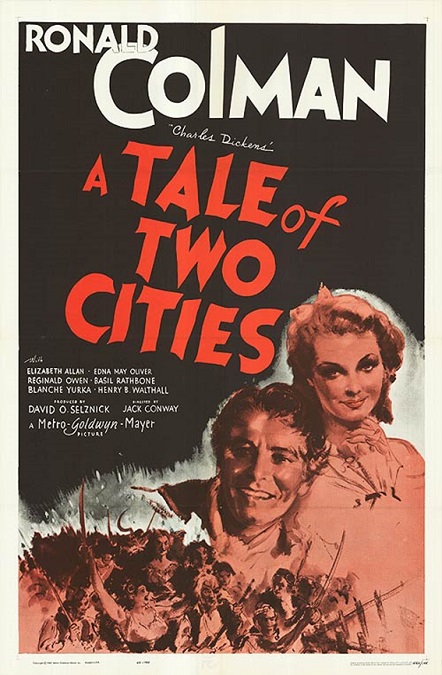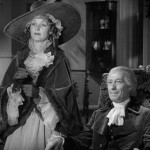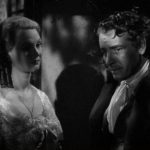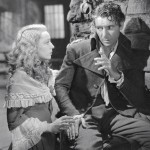
A Tale of Two Cities – 1936
I was thoroughly surprised by the quality of this film. Sure, the original novel is one of Charles Dickens’s most lauded works, but I have never read the book. In fact, the only exposure I have to the works of the author is David Copperfield, a Christmas Carol, and Oliver!, which is based on Oliver Twist. Each one of those books, and the subsequent films that were produced had several annoying common threads that always make me role my eyes. They all have a poor and suffering boy who has the heart and demeanor of an angel. All the adults are either pure evil, or unrealistically good. The bad guys always get their just deserts and the good guys end up embarking on a life full of familial bliss.
A Tale of Two Cities had none of these qualities. For those who do not know, I’ll give a very brief outline of the plot. The story takes place in France in the late 1700s during the famous French Revolution. Lucie Manette, played by Elizabeth Allen, is a young woman whose father has been imprisoned in the Bastille for 18 years, and has finally been released. The evil Marquis de St. Evermonde, played by Basil Rathbone, is a noble who cares nothing for the plight of the poor. His nephew, Charles Darnay, played by Donald Woods, is a sympathizer who leaves France rather than be a part of the French Nobility.
While in England, he meets Lucie and her father who have also fled France. They marry and have a daughter. A friend of the family named Sydney Carton, played by Ronald Colman, is a lawyer. He is a fascinating character. He is brilliant, but he is also a drunk who has such low self-esteem that he believes he deserves no better than a life of poverty and inebriation. He comes to believe that he could finally find happiness with Lucie, except that she is in love with Darnay.
When Darnay is tricked into returning to France because of a personal vendetta against his uncle, and therefore his family, Carton makes the ultimate sacrifice. He finds a way to go to the guillotine in Darnay’s place, in order to give Lucie happiness.
That is the short version. The story is much more complex and engaging than that, and I’m sure the book is even more so. It is so different than any other Charles Dickens story I have ever come across. There was action, intrigue, joy and sorrow. None of the characters were completely good or completely evil. They were all believable, and believably portrayed.
Ronald Colman, in particular, did a fantastic job as the man with the suffering soul. He had the potential for greatness in him that he could never realize. He was damaged in a way that was too deep to fully comprehend. The actor played the part very well. His use of facial expression, pacing and pathos were wonderful.
Another few actors who did a wonderful job were Blanche Yurka, Billy Bevan, Isabel Jewell, and one of my personal favorites, Edna May Oliver. Yurka played Madame Defarge, the French peasant who had a personal grudge against the Evermonde family. I loved how she was constantly going through the motions of frantic knitting with her needles, though it was obvious she wasn’t creating a single stitch.
Bevan was a British commoner who was a disreputable but loyal friend of Mr. Carton. Jewell played a small but memorable role as a French seamstress who is wrongfully sentenced to the guillotine for being employed by a nobleman. She was beautiful and wonderful to watch as she comes to terms with her impending death.
And then, there was Edna May Oliver. Goodness gracious! She was a busy woman in the 1930s. Here, she played the part of Miss Pross, Lucie’s devoted servant. When Madame Defarge comes to murder Lucie’s daughter as a descendent of the Evermond house, Miss Pross fights her and kills her in a surprisingly physical confrontation. Who knew the 52 year old actress had it in her?
This was definitely a film worth seeing. Like I stated earlier, it was such a wonderful departure from the Charles Dickens that I know. It was deeper and more suspenseful than I have ever known him to be. Well done Mr. Dickens!









Ronald Coleman was brilliant in the movie, A Talevog Two Cities!!!!????????